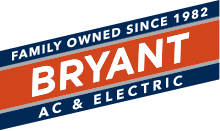The Pros and Cons of Smart Home Technology
The landscape of home energy solutions is constantly evolving, and exciting new ways to keep your home efficiently connected have never been easier to find. With the advent of smart home devices, all you need is an internet connection to automate processes and enjoy the simplicity of a home that practically thinks for itself. It can be easy to feel overwhelmed by all the new products and buzzwords, however. Here at Bryant Electric, we monitor the ever-changing world of electrical technology closely, and we’ve made some observations about the advantages and disadvantages of smart homes.
What Makes a Smart Home Great
Among the most attractive features of smart homes is the convenience that the technology provides. Controlling multiple devices around your house from one place using one interface is a significant time-saver. This even extends away from the home, as you’ll often be able to activate, deactivate, or schedule device operation on the go using your smartphone or tablet. Additionally, automated schedules and voice commands can greatly improve the life of elderly or disabled users.
Speaking of being on the go, smart security features allow you to monitor your home wherever you are. Some smart home security features even have alerts not just for intrusion, but also fire and carbon monoxide. And if you’re looking to save money, the detailed customization of smart home technology allows you to set energy-efficient operation schedules for your lighting and HVAC systems.
Things to Keep in Mind
However, you’ll have to keep a few things in mind if you’re looking to make a switch to smart home technology. First of all, while these devices can save you money in the long run, the starting cost of buying and installing them can be discouraging. Depending on the devices you select, there may be a learning curve which often serves as a barrier to older users.
Even if your smart home devices are set up well, the majority of them require internet access to run, meaning that your convenience is shackled to a reliable Wi-Fi signal. And when they’re connected, certain devices like Nest cameras can be compromised by hackers. Furthermore, the new, booming market for these devices may lead to “abandonware” — products or software that are no longer updated or supported by their manufacturers, usually due to more successful products dominating the market.
We advise you to weigh your options and do your research before deciding if you want to implement smart home technology of your own. If you have more questions about what smart devices can do for your energy usage, contact Bryant Electric Service today. Since 1982, we’ve been helping Central Texas stay on the cutting edge of energy and innovation.



